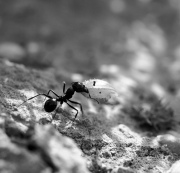Tags
Children, crowd funding, diet, Education, food, games, Health, Human, junk food, People, science and society, Science in Society
 Most people realize that our food is loaded with sugar and that our eating habits are unhealthy, but it’s very hard to change them. Rather than simply accepting the situtation or complaining about it, my sister-in-law and her mother decided to change it. Over the past several years, they’ve designed, tested, and refined a new board game, Frugivoro, that gets kids excited about healthy foods (and sneaks in some education, too!). Many of our eating habits form in childhood, so this is a create way to counter the deluge of junk food marketing kids are exposed to. Continue reading
Most people realize that our food is loaded with sugar and that our eating habits are unhealthy, but it’s very hard to change them. Rather than simply accepting the situtation or complaining about it, my sister-in-law and her mother decided to change it. Over the past several years, they’ve designed, tested, and refined a new board game, Frugivoro, that gets kids excited about healthy foods (and sneaks in some education, too!). Many of our eating habits form in childhood, so this is a create way to counter the deluge of junk food marketing kids are exposed to. Continue reading


You must be logged in to post a comment.